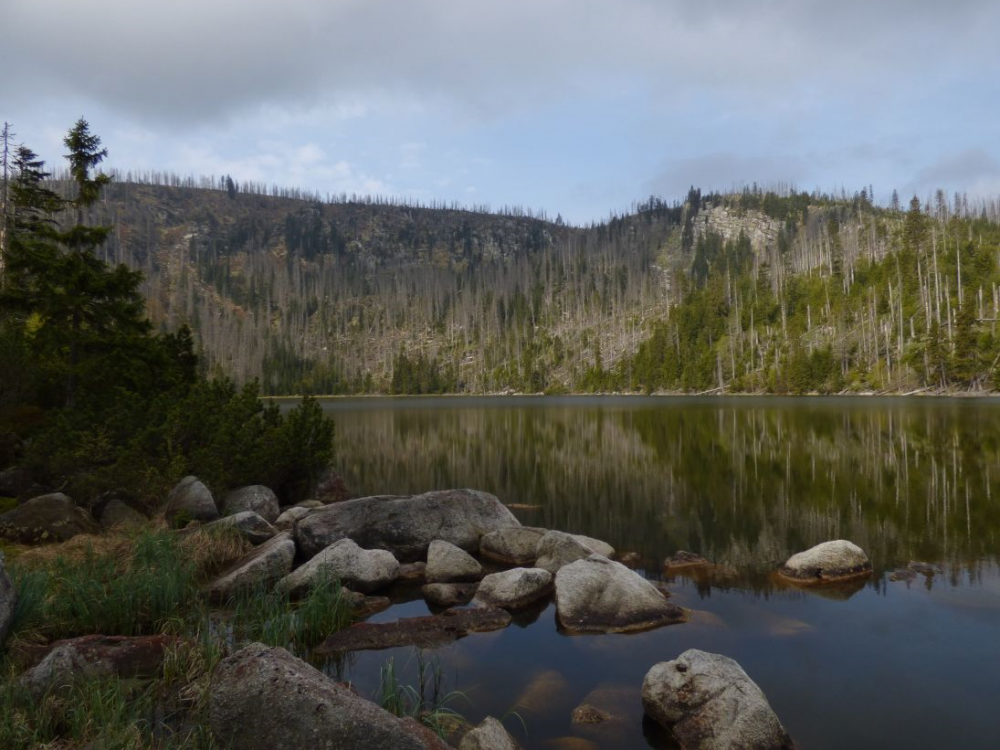The effect of natural dieback of mountain spruce forest on microclimate, chemistry, and biodiversity of terrestrial and aquatic ecosystems
Principal investigator: prof. Ing. Jiří Kopáček, PhD
(Co)investigator from the Department: Hana Šantrůčková
Duration: 2012 - 2016
Project goals:
Complex evaluation of effects of natural dieback of Norway spruce forests on microclimate, hydrology, and chemistry and biodiversity of soil and water.
Project description:
Windthrows and climatic factors have promoted bark beetle (Ips typographus) development and a large-scale dieback of Norway spruce in the unmanaged parts of the Bohemian Forest (central Europe). In 2004–2007, the defoliation killed >90% of forest in the Plešné Lake catchment. Windthrows occurred also in catchments of Čertovo and Laka lakes. All these areas have been subjects of our intensive long-term ecological research (water, climate, soil, and forest) since 1984–2002. Available pre-disturbance data, current research, and new proposed studies provide a worldwide unique opportunity for a complex ecological research on the effects of natural forest dieback on the individual ecosystem parts. We study (1) changes in element fluxes and pools on a whole-catchment scale (forest, soil, waters); (2) effects on microclimate, hydrology, and soil and aquatic chemistry and biodiversity; and project the net effects to other mountain areas, for different forestry practices, and along the anticipated trends in climate and atmospheric pollution.
